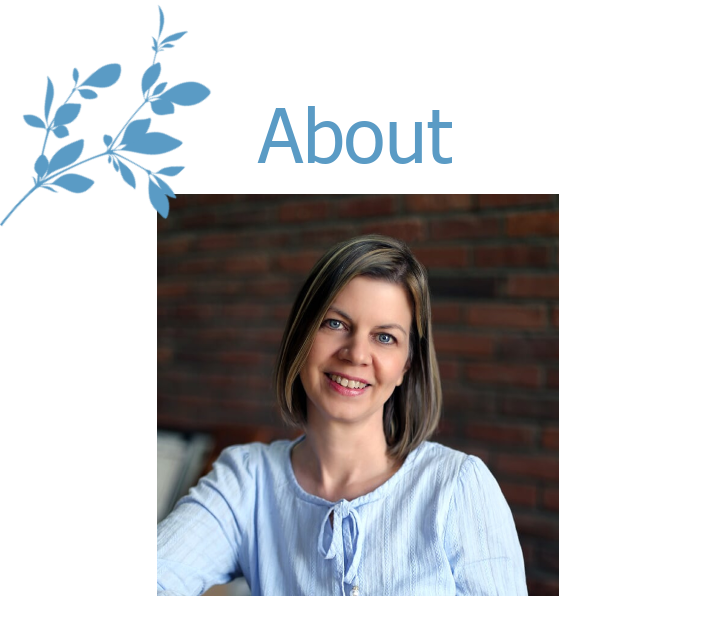Some of the “hard places” I’ve faced in my journey were when my children were small. I’m certainly not beyond those hard places—we’ve added a foster daughter to the mix! But one difficult period invovled a child diagnosed with ADHD.
Before I was a parent, I taught a group of children every week. In that class was one young boy who had been diagnosed as ADHD and who was on Ritalin. In those days, I would have reacted with some outrage at that idea and insisted that there was no such thing as ADHD, and that parents were copping out to allow their children to be labelled with that diagnosis. Especially when managing medications were involved, I would have insisted that all the child needed was some parenting with backbone.
And I would have been wrong.
When my second child was born, I knew something was different. She rarely slept. She was easily overstimulated. She had a hard time settling down. I had to remove the mobile from her crib because she’d stare at it for such a long time, she wouldn’t be able to get to sleep. After the mobile was gone, she lay there picking with her tiny fingers at the little flower pattern on the crib bumpers.
There were other issues, like the fact that she seemed to get sick so much, but it was hard to put a finger on what was wrong, until during homeschool, we began doing Kindergarten math and phonics with Explode the Code Online. Math facts she knew well and would race through one day, the next day she simply couldn’t recall. And I found myself spending 80-90% of my time trying to keep her on task and only 10-20% actually educating her.
The problem showed up most clearly when she did Explode the Code Online. While my son’s progress showed a steady upward climb, my daughter’s showed an erratic pattern that demonstrated the same kinds of problems as she was encountering with math—mastery one day, failure the next. It was a frustrating and discouraging time.

Some time later, I was having a conversation with someone from our church. She and her husband had adopted more than one special needs child through international adoptions. I asked her, “How did you know you were ready for that kind of commitment?” She referred to her firstborn and said, “We had already dealt with my son’s autism.” I was astonished. I had no idea he was autistic!
Then she told me something else I’d never heard before: ADD and ADHD were on the autism spectrum, meaning whatever therapies were helpful for one had the potential to help the other.
She shared the therapies she’d used to help her son function at such a high level. The thing she was most convinced had been helpful for him was something she called enzyme therapy.
Soon afterward, we began enzyme therapy with our daughter. The change was almost instant and very dramatic. The first thing we noticed was she stopped getting sick all the time. This was huge. During our first six months in China, she had been sick most of the time!
We also noticed some notable changes in her behavior, but the big proof was in her Explode the Code results. Instead of the erratic pattern, we saw a steady upward graph. She was learning!
We have employed some other strategies as well. Here are some things that we have found helpful for her:
- hands-on learning
- building up the attention span with lots of cuddle and read-to-me time
- drawing – this has been very therapeutic for her
- playing with modeling clay (She seems to need to do something with her hands. This has given her an incredible outlet.)
- a gluten-free diet
People who meet my daughter today rarely guess she was diagnosed with ADHD. She’s thriving and very intelligent. We rarely deal with attention or focus issues anymore, and I try to listen to her about the things that contribute to a difficulty in focusing (like lack of regular routine or a cluttered workspace).
I hope this post offers families dealing with these issues some hope. What have you done in your home to manage symptoms of ADHD?




Thank-you for sharing your story Carey! This sounds just like our daughter. As you may have read, her diagnosis is Sensory Processing Disorder, but what I didn’t mention is she is being monitored for ADHD as well. She exhibits the traits you mentioned. She is so incredibly intelligent but her actual school work results are up and down like you mentioned. One day she’ll get everything right, and the next day she’ll forget little things like “m” and “n.” It’s so perplexing! Knowing how embarrassed she feels here at home I can’t imagine how she would feel in a public situation, so I know she benefits greatly in that aspect as well! We are switching to gluten-free now, and I’ll have to look into enzyme therapy as well. Thank-you for the suggestion!
You can’t imagine how long I held out on gluten-free. But what a difference it made! I was slower to see the change, but other people told me what a big difference they saw in her. I figured we were already eating grains like spelt and kamut, which are lower in gluten than wheat, and I didn’t want to subject my husband to yet another diet change, but a friend’s story about her daughter finally convinced me. I’ll be so grateful if some of these things help your daughter, Emilee. And I agree. I’ve often thought how 1) we might not have noticed these things if she were in public school and 2) how isolated she might be. And she’s such a friendly, loving girl. It would be a shame to subject her to that.